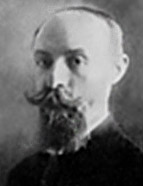

In addition to his articles, the books he published were commissioned by publishers interested in disseminating his knowledge and work to a wider audience, such as Armand Colin and Larousse. In fact, his most famous work, recognised for its synthesis and erudition, is the compendium La Littérature portugaise, published in 1935. In 1949, Orlando Ribeiro said of this work: “Documented in every detail with the utmost rigour, revealing a perfect command of the bibliography and direct knowledge of the authors, served by a highly refined aesthetic criterion, this small manual is a valuable introduction to the study of the periods and trends of Portuguese literature, often enhanced by the author’s original readings and reflections.” Fernando Romero sees in the compendium “a perfect synthesis of our literature, with its own colour and offering a rare and felicitous perspective on our greatest writers, characterising them with an aptitude that we rarely see in foreign authors.” ( Georges Le Gentil , Oliveira Martins..., p. 15). Such praise also reflects the objectives of this compendium, which aims to demonstrate that “Portuguese literature is not a branch of Hispanic literature, but the expression of an independent nationality that has retained its intellectual autonomy even during sixty years of foreign occupation.” (Georges Le Gentil, La Littérature portugaise , 1935, p. 3). Updated by Robert Bréchon, an eminent specialist in the work of Pessoa and author of the five chapters on Portuguese literature written between 1934 and 1995, La Littérature portugaise remains a very useful work for students of Portuguese in France.
Georges Le Gentil also contributed to Camões studies and to the popularisation of Camões’ work in France. As early as 1926, in the context of the tercentenary of Camões’ death, he devoted an article in the Bulletin hispanique to the revival of Camões studies in both Portugal and Brazil. In his compendium, he emphasises the ‘genius’ of the author of Os Lusíadas, who embodied all the greatness of the ‘Portuguese Renaissance’. In another later text, he conceived Camões’ work as the symbol of a new “stage of civilisation, precisely that in which Portugal is at the forefront of progress”. ( Camões. L’oeuvre épique et lyrique , 1995, p. 279). This quote is taken from the biography of Camões and the literary analysis of his work, published posthumously in 1954. Translated and published in Portugal in 1969 by José Terra, this “essay” aimed to promote Camões’ work, which was still little known and recognised in France at the time. It is worth remembering that in 1939 Georges Le Gentil had already written a brief biography of Camões in the volume entitled Les grandes figures, published by Larousse, in which the Portuguese epic poet is counted among the 50 most important personalities in world history, from Moses to Pasteur, alongside such famous writers as Virgil, Dante, Montaigne, Voltaire, Goethe, Balzac and Victor Hugo.
This work is financed by national funds through FCT - Foundation for Science and Technology, I.P, in the scope of the projects UIDB/04311/2020 and UIDP/04311/2020.
